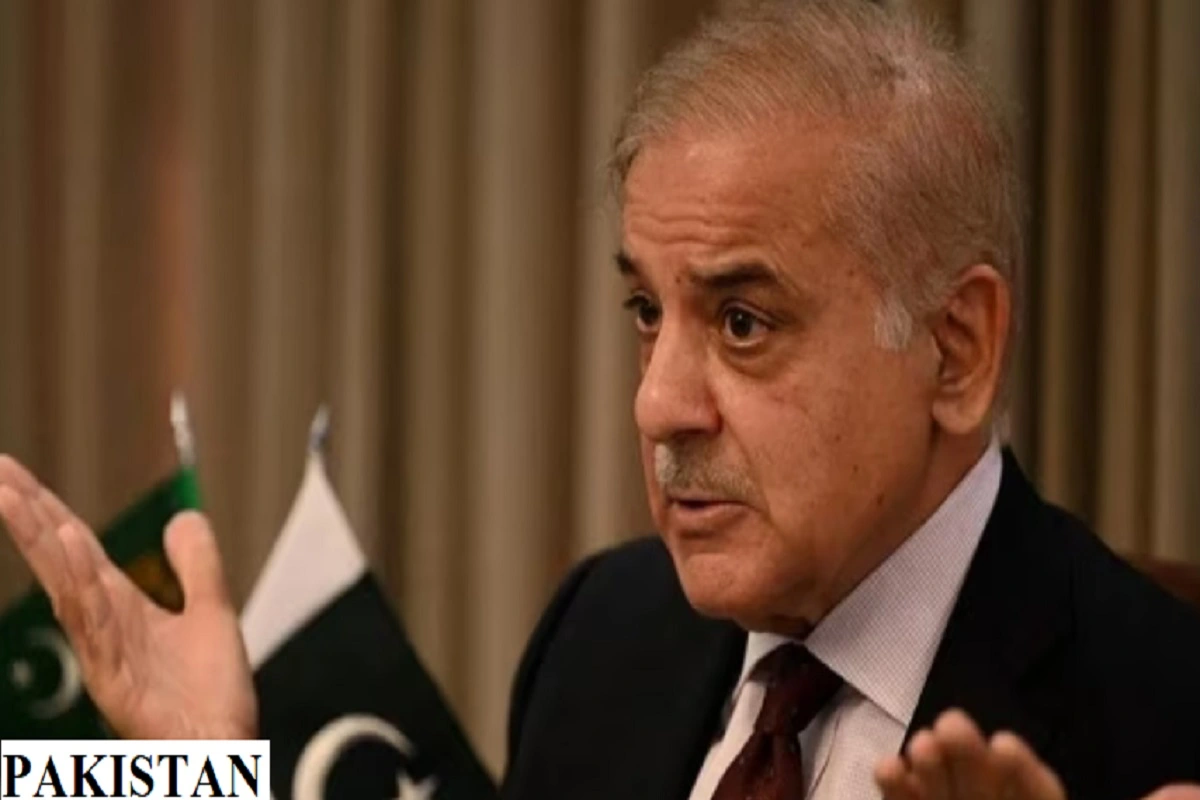
Equanimity was the compulsion of Pakistan
There is a famous Hindi film song – ‘Sab kuch luta ke hosh mein aaye to kya kiya’. Sung by Lata Mangeshkar and picturized on Madhubala, the fifties song was widely hummed across the border in Pakistan when it hogged popularity. Those who connected their life story with this song then, would not have thought that one day this song would turn into the reality of their country.
Definitely, a paradox is seen here – behind the song situation in the film there is a betrayal against true love, whereas here we behold the issue of hatred. You must have understood the purpose of this long introduction. Actually, the reason related to this is the recent statement given by Pakistani Prime Minister Shehbaz Sharif. Let us first go through the statement once, then we will review it in detail. In an interview given to an Arab channel, Sharif said that Pakistan has had three wars with India, and they have only brought misery, poverty and unemployment to the people. Pakistan has learned its lesson, and wants to live in peace with India, provided both countries are able to solve their real problems.
This statement of Sharif has come at a time when Pakistan is passing through a very debilitated financial phase. There is no food, no electricity, no medicines, and no other basic amenities available to the people. Foreign exchange reserves have been depleted to such an extent that Pakistan can now import only for two weeks. Saudi Arabia, the United Arab Emirates, Qatar, and other allied Islamic countries have also limited their support. Seeing the Pakistani economy going into the abyss, instead of new help, China is also repeatedly displacing anger for the recovery of the old loans.
The effects of the floods in 2021 have also consumed the remaining government treasury. Bilateral trade has come to a complete standstill due to sour relations with India. In such a situation, India is sending wheat to Afghanistan, but not to Pakistan. The pictures of Pakistani people standing on the verge of starvation running for flour had also gone viral recently.
Hence, here in the first place, behind this statement of Sharif, we clearly see no inspiration of any introspection but mere compulsion born out of the situation. Elections are also to be held in Pakistan this year. Anyway, this is not the first time that a Pakistani Prime Minister is talking about peace. In 1999, Atalji visited Lahore with message of peace and then was stabbed in the back in Kargil. Pervez Musharraf came to India in 2001 and after signing the Agra Pact, there was a flurry of terrorist activities on the border as soon as he returned to Pakistan.
Since then, there have been many instances when peace talks were initiated but were stalled by terrorist activities like Uri, and Pulwama. This is also true of Pakistan’s India policy. While the Pakistani army has used India’s threat as a shield to secure its hegemony in the country, Pakistani politicians have spent their lives fanning anti-India sentiments for votes.
Another aspect appears here as the language of Sharif’s statement. Who learns the lesson? The one who makes a mistake. Have you ever heard a person affected by someone else’s mistake say -I have learned my lesson and I will not fight to defend myself? Only the aggressor says that he has learned his lesson.
India never imposed war on Pakistan. When attacked, we have never had any option but to counterattack in order to defend. The policy of provocation has turned Pakistan upside down every time and each war has made it poorer and more unstable than before. On the other hand, there is India, which has become an important voice of the world today by moving forward on the path of peace after partition. By following the mantra of Sabka Saath, Sabka Vikas, Sabka Vishwas and Sabka Prayas, today India is witnessing the golden age of progress and prosperity. We have corrected ourselves from time to time, so there are no lesson-learning situations for us like in Pakistan today.
The third aspect of Sharif’s statement is the last part ‘provided we can solve our real problems’. Through this Pakistan tries to impose its condition on India even while learning a lesson as if it is India’s compulsion to do good to Pakistan. By referring to human rights in Kashmir and Article 370, Pakistan has also made it clear that it is not one to reform.
Therefore, there is nothing new in Sharif’s statement and interestingly it has been denied on both sides of the border. Sharif may have tried to save his neck by repeating the Kashmir condition to control the outcome of talks with India, but this has not gone down well with the Pakistan Army. The clarification that came from Sharif’s office soon after his statement is the result of pressure from the Pakistan Army. India has also rejected Sharif’s statement raising old issues linked to Kashmir, outrightly.
There is no reason to believe Sharif either. Why should India talk to Pakistan until it stops cross-border terrorism? What compulsion do we have to accept UAE or any other country as a mediator? The ‘Shimla Agreement’ clearly rejects any third-party mediation between the two countries and the agreement was signed not only by us but also by Pakistan. Anyway, any beginning of peace between the two countries cannot proceed without the intervention of the Pakistani army. The world also knows that the decisions of Pakistan are not made in its National Assembly, but in the military headquarters located in Rawalpindi. In view of this, Sharif’s words have no value.
In fact, Pakistan today is at such a historical crossroads where it needs a solid policy not only for a stable economy but also for national security. For this, it needs to put the Kashmir issue behind it and ensure harmony among its home provinces, where large-scale disunity is hollowing it out like a termite. This internally growing rift is not only a threat to Pakistan but also to the whole world. We should not forget that Shehbaz Sharif, who talked about learning lessons in the context of India, has reminded the world that it is also a nuclear country. This is perhaps the only thing worth noting in Sharif’s entire statement.


















